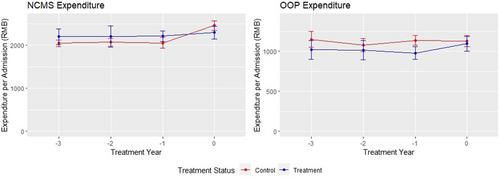How hospital autonomy affects provider payment reform effectiveness
Abstract
Background
Provider payment reforms (PPRs) have demonstrated mixed results for improving health system efficiency. Since PPRs require health care organisations to interpret and implement policies, the organizational characteristics of hospitals may affect the effectiveness of PPRs. Hospitals with more autonomy have the flexibility to respond to PPRs more efficiently, but they may not if the autonomy previously facilitated behaviours that counter the PPR's objective. This study examines whether hospitals with higher autonomy responds to PPRs more effectively.
Methods
We used data from a matched-pair, cluster randomized controlled PPR intervention in a resource-limited Chinese province between 2014 and 2018. The intervention reformed the reimbursement method from the publicly administered New Cooperative Medical Scheme (NCMS) from fee-for-service to global budget. We interacted measures of hospital autonomy over surplus, hiring, and procurement (drugs, consumables, equipment, and overall index) with the difference-in-difference estimator to examine how autonomy moderated the intervention's effect.
Results
Autonomy over surplus (p < 0.01) and procurement of equipment (p < 0.01) were associated with relatively faster NCMS expenditure growth, demonstrating worse PPR response. They were also associated with higher expenditure shifting to out-of-pocket expenditures (p > 0.05). Post hoc analysis suggests that hospitals with surplus autonomy had higher OOP per admission (p < 0.01), suggesting profiteering tendencies. Other dimensions of autonomy demonstrated imprecise association.
Discussion
Hospitals with more autonomy may not necessarily respond more effectively to PPRs that incentivise efficiency when they had previously been encouraged to maximise profit. Policymakers should assess the extent of perverse incentives before granting autonomy and adjust the incentives accordingly.


 求助内容:
求助内容: 应助结果提醒方式:
应助结果提醒方式:


